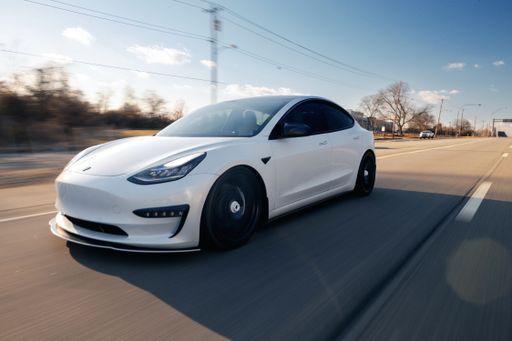Musk once laughed off BYD as a threat. Now the Chinese giant has taken Tesla’s EV crown — here’s how
Chinese automaker BYD has dethroned Tesla as the top EV maker. Learn how BYD became an electric car giant and surpassed Tesla.

Elon Musk dismissed BYD
In 2011, Elon Musk laughed off Chinese automaker BYD and underestimated its potential. During a Bloomberg interview, Musk criticized BYD's products as unattractive with weak technology. He also remarked that BYD had problems in its home market of China. Musk believed that their primary focus should be on survival in China.
However, BYD defied Musk's predictions. In the fourth quarter, BYD overtook Tesla as the top EV maker by selling more battery-powered vehicles. This accomplishment was a significant milestone for BYD in its goal to become China's largest auto manufacturer and put China's manufacturing capabilities on the map.
BYD's success can be attributed to strategic investments and diversification. The company started as a maker of mobile phone batteries and gradually expanded into various industries, including electric cars.
BYD’s history
BYD was founded in 1995 by chemist Wang Chuanfu in Shenzhen, China. Initially, the company focused on manufacturing lithium-ion batteries, which gained popularity with the growth of mobile phones. BYD supplied batteries to major mobile phone brands like Motorola and Nokia.
In 2002, BYD entered the automotive industry by acquiring Xi'an Qinchuan Automobile. It launched its first car, the F3, in 2005. In 2008, Warren Buffett's Berkshire Hathaway invested $230 million in BYD, boosting its electric car ambitions.
BYD continued to innovate in the EV space and developed the Blade battery, an LFP (lithium iron phosphate) battery known for its high energy density and safety. The Blade battery played a significant role in BYD's success and helped it surpass Tesla in EV sales.
What has been behind BYD’s success?
BYD's success in the EV market can be attributed to its experience as a battery supplier and its strategic positioning. The company established itself as a reliable battery supplier to tech giants like Apple before venturing into electric cars. Its expertise in battery technology allowed BYD to sell batteries to other automakers.
Additionally, BYD targeted the mid-range market with its hybrid cars, offering high economic efficiency and addressing range anxiety concerns. The company also focused on branding, creating sub-brands like Denza to cater to different price points in the market.
Furthermore, BYD benefited from strong government support for the Chinese EV sector. Beijing provided subsidies and state support to incentivize electric car adoption. BYD received significant state support, allowing it to scale up production and research and development activities.
Global ambitions
Having established dominance in China's EV market, BYD is now expanding aggressively overseas. The company sells cars in various countries and has a significant market share in electric vehicles in southeast Asia.
BYD's global expansion involves not only selling cars but also manufacturing and securing key resources like lithium. The company plans to open its first European manufacturing plant in Hungary and is looking to acquire lithium mining assets in Brazil.
However, BYD's expansion has faced scrutiny from governments concerned about the subsidies received by Chinese carmakers. Investigations into subsidies given to electric vehicle makers in China have been launched in Europe, and the United States aims to protect its domestic EV sector through initiatives like the Inflation Reduction Act.

